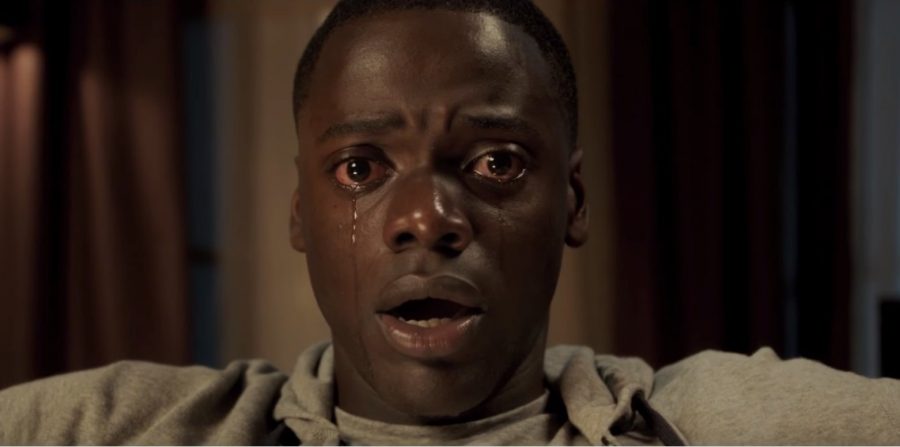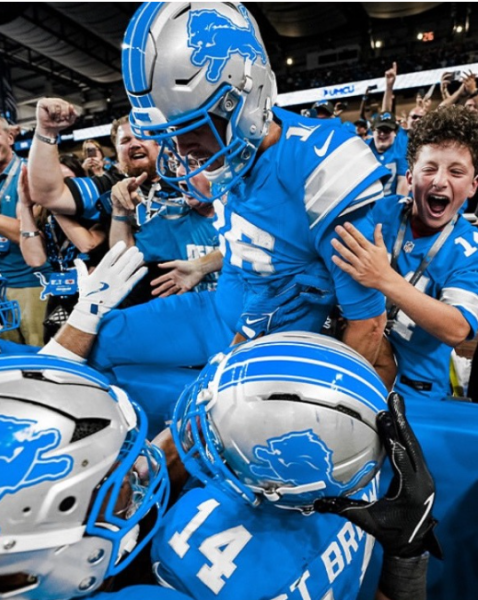“Get Out” explores modern day racism
March 17, 2017
On March 14, “Get Out” surpassed $100 million at the box office, making Jordan Peele the first African American to accomplish this feat with his debut film. “Get Out” has made waves across America. This twisted mashup of “Guess Who’s Coming To Dinner” and classic psychological horror films is meant to be seen by everybody: white, black, asian, interracial and monoracial couples.
“Get Out” follows Chris and Rose, a young interracial couple, who are going to visit Rose’s parents, Dean and Missy Armitage, in their upstate New York suburb for a weekend getaway. Straight away, Chris notices the subtle racist and biased remarks from Rose’s parents, her younger brother, and eventually other characters throughout the weekend. Chris also notices, to Rose’s oblivion, the weird vibes given off from the other black people in the predominantly white suburb. The peak of the subtle racism Chris experiences culminates at the Armitages’ annual get together; this is also the point where moviegoers can start to see all the connected dots and the plot line starts to pick up.
All of the actors, main and supporting, did a superb job really tapping into their respective tropes. In Daniel Kaaluya’s case, his hesitance to share his concerns and observations with Rose felt incredibly realistic. The real star of this film, however, was the social commentary. This film explores the complexities and ignored truths of racism. Peele shuts down society’s preconceived beliefs that racism is an issue of the 1960s–racism today does not resemble the racism of the 1960s.
There truly was not much to criticize about this movie. The execution, musical score and social commentary were all on point in “Get Out”. The one critique of the film that was noticeable enough to list was the ending. While the released ending was much better than the alternate ending hinted at by Jordan Peele, the ending felt like there could have been more added to it. Perhaps a short snippet into the effects the other characters felt at the will of the main antagonists would have felt more full circle.
Overall, “Get Out” is a film everybody needs to see. Not just for it’s excellent social commentary, but for the amazing performances by the actors and a musical score that will keep everybody on the edge of their seats, perhaps even jumping out of them a little. “Get Out” is a film that, if given the opportunity, should be watched in theaters, and, judging by the never ending flow of rave reviews, movie-goers will have the opportunity to watch “Get Out” in theaters for a very long time.
Rating: 5/5







